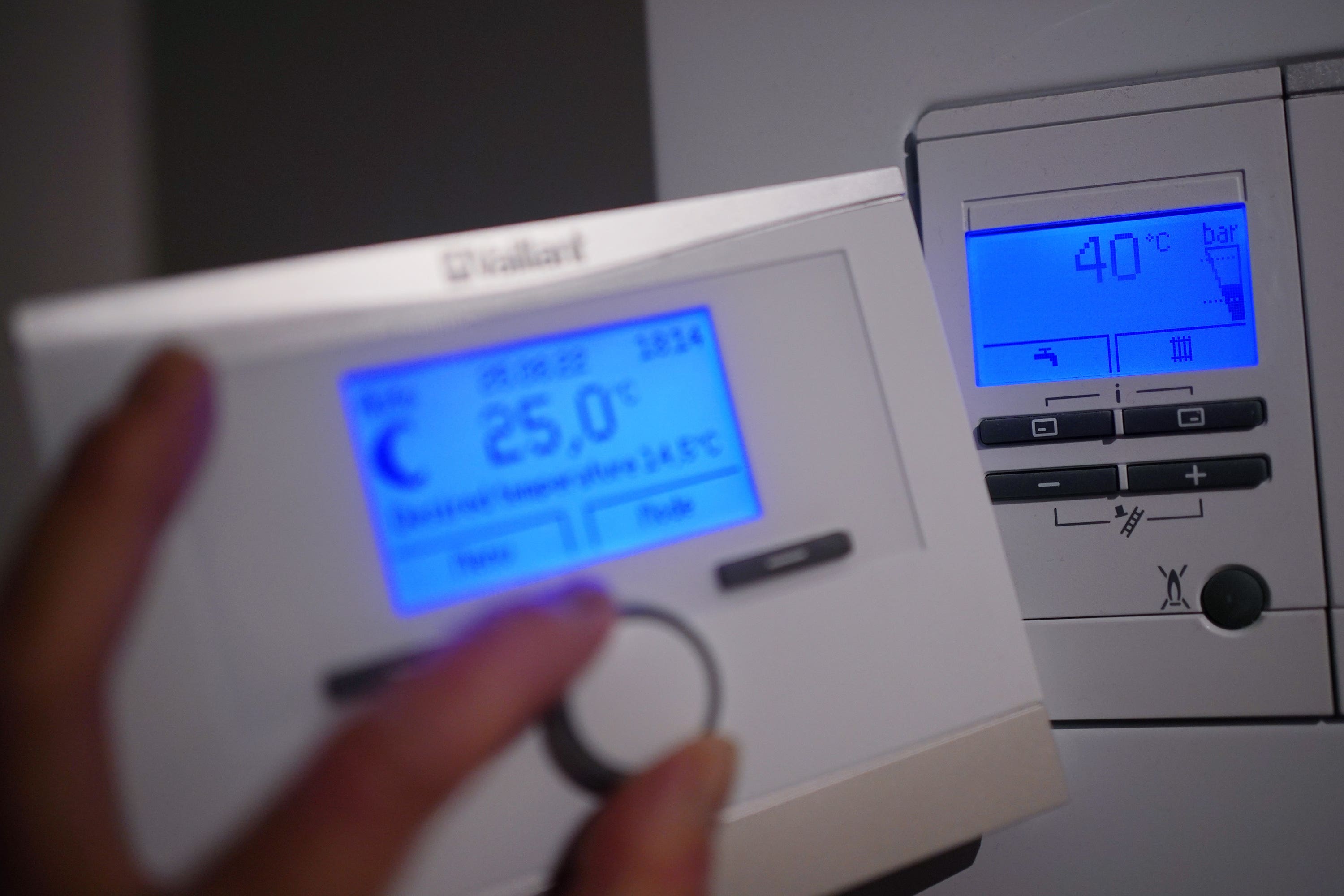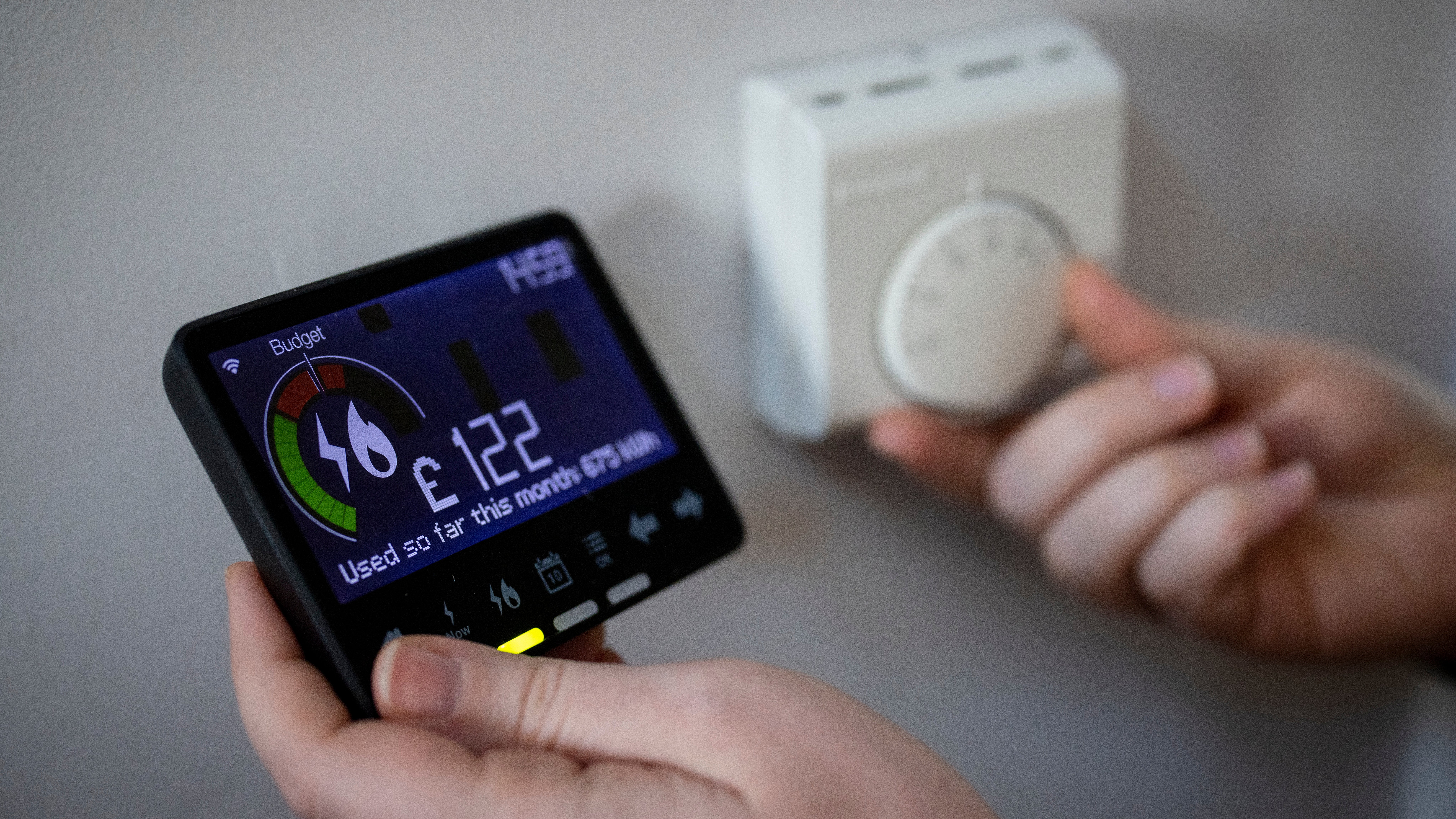Ofgem unveils price cap rise as millions to pay more for energy bills
Gas and electricity bills to rise by nearly £100 as new price cap unveiled
Millions of householders are set to pay 5 per cent more for their gas and electricity bills after the energy watchdog announced its latest price cap.
Bills for a typical energy user paying by direct debit will rise from £1,834 a year to £1,928, an increase of £94, Ofgem announced on Thursday.
The new rates – which come into effect from 1 January – will cause dismay among the millions of people across the UK struggling with the cost of living.
For an average household paying by direct debit, the unit rate will rise from 27.35p to 28.62p per kWh for electricity, and from 6.89p to 7.42p per kWh for gas. The average daily standing charge will remain at 53p a day for electricity and 30p a day for gas.
Citizens Advice warned it was already helping record numbers with energy debt and was seeing more people than ever who can’t afford to top up their prepayment meter.
“Prices going up during the coldest part of the year will make life harder for millions of people already struggling to pay their bills,” said Gillian Cooper, director of energy at Citizens Advice.
“Yesterday, the government missed the opportunity to announce extra support for households who desperately need it this winter. The lack of action means far too many households will now be forced to choose between heating and eating this winter.”
Around two million households have turned off their fridge or freezer to cope with rising energy bills, according to the Joseph Rowntree Foundation.

The energy price cap, which the government introduced in January 2019, is a maximum price that suppliers can charge consumers in England, Scotland and Wales for each kilowatt hour (kWh) of energy they use.
Regulator Ofgem resets the cap every three months – in January, April, July and October – as the amount paid by a typical household. The latest announcement involves maximum charges for 1 January to 31 March next year.
Cornwall Insight, a consultancy that forecasts energy costs, predicted that the typical bill would fall to £1,853 from 1 April, but not drop below today’s level until July next year.
Ofgem said the increase – of around £7.83 a month – was driven almost entirely by rising costs in the international wholesale energy market due to market instability and global events, particularly the war in Ukraine and including the conflict in the Middle East.
The idea of the price cap is to ensure that prices for customers on default energy tariffs are a fair reflection of the cost paid by suppliers for wholesale energy, and that the profit firms make is capped.
The cap does not set a maximum amount for individual bills received – households that use more than the average amount will pay more, and those that use less will pay less.
Bill-payers do not have to do anything to claim the lower rates, as the cap will take effect automatically.
Last winter, the average household energy bill was £2,500 a year, thanks to the government’s separate Energy Price Guarantee scheme, which brought down costs below the energy price cap.

Price cap changes are largely based on wholesale costs to suppliers, as well as factors such as the costs of maintaining pipes and wires.
New research from Citizens Advice Scotland (CAS) suggests almost half of people in Scotland believe energy bills are their biggest financial concern this winter.
Ofgem chief executive Jonathan Brearley said: “This is a difficult time for many people and any increase in bills will be worrying. But this rise – around the levels we saw in August – is a result of the wholesale cost of gas and electricity rising, which needs to be reflected in the price that we all pay.
“It is important that customers are supported and we have made clear to suppliers that we expect them to identify and offer help to those who are struggling with bills.
“We are also seeing the return of choice to the market, which is a positive sign, and customers could benefit from shopping around with a range of tariffs now available offering the security of a fixed rate or a more flexible deal that tracks below the price cap.
“People should weigh up all the information, seek independent advice from trusted sources and consider what is most important for them, whether that’s the lowest price or the security of a fixed deal.”
Simon Francis of the End Fuel Poverty Coalition warned that the price hikes “come at the worst possible time for households”, saying: “Bills will go up just as winter bites hard and household finances are hit further by Christmas credit cards, the long January pay period and the ongoing wider cost-of-living crisis.
“We warned Ofgem that a January price cap rise was a bad idea when the regulator consulted on this in 2022. Now the chilling effect of the change is being realised, the inhumanity of this policy is clear to see.
“It will be anything but a happy new year for people trapped in Britain’s broken energy system.”
Richard Neudegg, director of regulation at Uswitch.com, said: “The price cap is no longer fit for purpose and gives providers little incentive to offer better deals. The system needs reforming to create a more competitive market that also protects households.”
Join our commenting forum
Join thought-provoking conversations, follow other Independent readers and see their replies
Comments
Bookmark popover
Removed from bookmarks